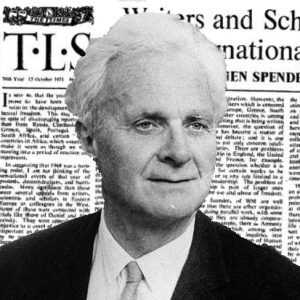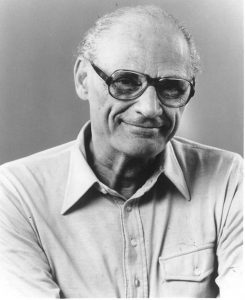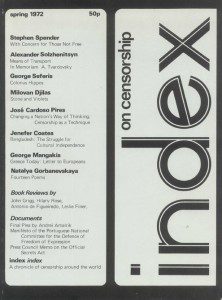25 Mar 22 | Czech Republic, Opinion, Russia, Ruth's blog, Ukraine, United States
“We will not be intimidated or pushed off the world stage by people who do not like what we stand for, and that is, freedom, democracy and the fight against disease, poverty and terrorism.” — Madeleine Albright (1937-2022)
This week one of those special people passed away. A woman who broke glass ceilings, whose leadership inspired so many others, a woman who knew what she stood for and was determined to fight for what she knew to be right. She had a life well lived and has left her mark on the world. The reality is our society is lessened by her passing, but we were lucky to have her, and we so nearly didn’t.

Former US Secretary of State Madeleine Albright. Photo: Fiona Hanson/PA Images
Madeleine Albright was born Marie Jana Korbelová, in Prague in 1937, to a Jewish family. Her family fled to London in 1939 when the Nazis invaded. They converted to Roman Catholicism and hid their true identity for decades. The first female US Secretary of State only discovered the truth and the fact that 26 members of her family had been murdered in the Holocaust as an adult. At the end of the war her family chose to return to Czechoslovakia, but this proved short-lived and they were forced to flee the Communist regime in 1949 and seek asylum in the States.
As traumatic as her early life was, Marie Jana Korbelová did more than most to shape the future, to find hope and to cherish the democratic values that were stolen from her and her family. Her personal story and her impact were exceptional. But reflecting on her life has caused me to think a lot about the Children’s Memorial at Yad Vashem, Israel’s Holocaust Museum.
There is a single candle surrounded by mirrors. The reflection of each flame represents a life not born – a story not told. It highlights, in simply imagery, the lives that were extinguished, the families that were destroyed and, heartbreakingly, the children never born because their parents had been murdered. We have no idea of what the world lost because of the Shoah. The poetry and books not written, the art not created, the scientific discoveries not made.
Which brings me to the horrors we see every day on our news. The images of the death and destruction in Ukraine. Lives of every Ukrainian citizen have been turned upside down. We see daily reports of war crimes. Of children being killed, of journalists being kidnapped, of humanitarian aid being blocked.
In Ukraine today, the daily horrors shock and upset us all but for me it is also the devastation of the lives not lived. The talent that is being brutally removed from our world. Our collective society is being lessened because of their deaths and those that will now never be born. We will never know what we have lost. We can only hope that among those that survive there will be someone as inspirational as Madeleine Albright.
22 Oct 21 | Opinion, Ruth's blog
[vc_row][vc_column][vc_column_text] On 15 October 1971, in the depths of the Cold War, the feted British poet Stephen Spender wrote an impassioned appeal for the Times Literary Supplement in which he highlighted the threat of a world without creativity or impartial news as repressive regimes sought to silence dissent.
On 15 October 1971, in the depths of the Cold War, the feted British poet Stephen Spender wrote an impassioned appeal for the Times Literary Supplement in which he highlighted the threat of a world without creativity or impartial news as repressive regimes sought to silence dissent.
Writers, academics, journalists and artists were subject to state sanctioned persecution on a daily basis, threatened, arrested and in too many cases murdered as authoritarian leaders moved against their citizens. Watching was no longer enough, letters to the Times and statements of solidarity were no longer sufficient for Spender and a group of his contemporaries.
It was time to act, to provide an international platform for dissidents to publish their work and importantly it was time to make a positive argument for the liberal democratic values of free speech and free expression. It was time to launch Writers and Scholars International and its in-house journal Index on Censorship.
Spender concluded: “The problem of censorship is part of larger ones about the use and abuse of freedom.”
In the 50 years since Spender wrote in the TLS, Index has published the works of thousands of dissidents, their words, their art and their journalistic endeavours. From Havel to Rushdie, from Zaghari-Radcliffe to Ma Jian, their works have found a home in our publication. Their stories have been told and their works published for posterity – a recognition of their plight.
Fifty years later Spender would have hoped for us to be irrelevant, that the fundamental freedom of free expression was not just respected but embraced throughout the world. If only that was the case. Every week there is an attack on academic freedom at home or abroad, a new debate about our online rights and a new report of a systematic attack on those that embody the very principle of free speech.
In 1971 over a third of the world’s population lived under Communist rule with still more living under other forms of totalitarian regime. Today 113 countries, representing 75 per cent of the global population, completely or significantly restrict core human rights.
These aren’t just statistics, there are real people behind each headline.
In Belarus 811 people are currently detained as political prisoners by Lukashenka, including Andrei Aliaksandrau one of Index’s former staff members. In Egypt more than 60,000 people are imprisoned, including our award-winner Abdelrahman Tarek – detained and regularly tortured since the age of 16 for attending democracy demonstrations. In Afghanistan three young female journalists were brutally assassinated as they left work earlier this year. In Hong Kong the 50 leading democracy protestors have been arrested by the CCP and their families threatened.
These brave journalists and campaigners represent millions of people who cannot use their voices without fear of retribution. Every day they face a horrendous choice between demanding democratic rights or being silenced.
Index seeks to be a platform for them – providing a voice for the persecuted, ensuring that no tyrant succeeds in silencing dissent.[/vc_column_text][/vc_column][/vc_row][vc_row][vc_column][three_column_post title=”You may also wish to read” category_id=”41669″][/vc_column][/vc_row]
16 Sep 19 | News and features, Volume 48.03 Autumn 2019
[vc_row][vc_column][vc_column_text]

Arthur Miller, American playwright (Photo: U.S. Department of State / Wikipedia)
It is always necessary to ask how old a writer is who is reporting his impressions of a social phenomenon. Like the varying depth of a lens, the mind bends the light passing through it quite differently according to its age. When I first experienced Prague in the late 60s, the Russians had only just entered with their armies; writers (almost all of them self-proclaimed Marxists if not Party members) were still unsure of their fate under the new occupation, and when some 30 or 40 of them gathered in the office of Listy to ‘interview’ me, I could smell the apprehension among them. And indeed, many would soon be fleeing abroad, some would be jailed, and others would never again be permitted to publish in their native language. Incredibly, that was almost a decade ago.
But since the first major blow to the equanimity of my mind was the victory of Nazism, first in Germany and later in the rest of Europe, the images I have of repression are inevitably cast in fascist forms. In those times the communist was always the tortured victim, and the Red Army stood as the hope of man, the deliverer. So to put it quite simply, although correctly, I think, the occupation of Czechoslovakia was the physical proof that Marxism was but one more self-delusionery attempt to avoid facing the real nature of power, the primitive corruption by power of those who possess it. In a word, Marxism has turned out to be a form of sentimentalism toward human nature, and this has its funny side. After all, it was initially a probe into the most painful wounds of the capitalist presumptions, it was scientific and analytical.
What the Russians have done in Czechoslovakia is, in effect, to prove in a western cultural environment that what they have called socialism simply cannot tolerate even the most nominal independent scrutiny, let alone an opposition. The critical intelligence itself is not to be borne, and in the birthplace of Kafka and of the absurd in its subtlest expression absurdity emanates from the Russian occupation like some sort of gas which makes one both laugh and cry. Shortly after returning home from my first visit to Prague mentioned above, I happened to meet a Soviet political scientist at a high-level conference where he was a participant representing his country and I was invited to speak at one session to present my views of the impediments to better cultural relations between the two nations. Still depressed by my Czech experience, I naturally brought up the invasion of the country as a likely cause for American distrust of the Soviets, as well as the United States aggression in Vietnam from the same detente viewpoint.
That had been in the morning; in the evening at a party for all the conference participants, half of them Americans, I found myself facing this above-mentioned Soviet whose anger was unconcealed. ‘It is amazing,’ he said, ‘that you – especially you as a Jew – should attack our action in Czechoslovakia.’ Normally quite alert to almost any reverberations of the Jewish presence in the political life of our time, I found myself in a state of unaccustomed and total confusion at this remark, and I asked the man to explain the connection. ‘But obviously,’ he said (and his face had gone quite red and he was quite furious now) ‘we have gone in there to protect them from the West German fascists.’
I admit that I was struck dumb. Imagine! The marching of all the Warsaw Pact armies in order to protect the few Jews left in Czechoslovakia! It is rare that one really comes face to face with such fantasy so profoundly believed by a person of intelligence. In the face of this kind of expression all culture seems to crack and collapse; there is no longer a frame of reference.
In fact, the closest thing to it that I could recall were my not infrequent arguments with intelligent supporters or apologists for our Vietnamese invasion. But at this point the analogy ends, for it was always possible during the Vietnam war for Americans opposed to it to make their views heard, and, indeed, it was the widespread opposition to the war which finally made it impossible for President Johnson to continue in office. It certainly was not a simple matter to oppose the war in any significant way, and the civilian casualties of protest were by no means few, and some – like the students at the Kent State College protest – paid with their lives. But what one might call the unofficial underground reality, the version of morals and national interest held by those not in power, was ultimately expressed and able to prevail sufficiently to alter high policy. Even so, it was the longest war ever fought by Americans.
[/vc_column_text][vc_row_inner][vc_column_inner width=”1/4″][vc_icon icon_fontawesome=”fa fa-quote-left” color=”custom” size=”xl” align=”right” custom_color=”#dd3333″][/vc_column_inner][vc_column_inner width=”3/4″][vc_column_text]
The sin of power is to not only distort reality but to convince people that the false is true, and that what is happening is only an invention of enemies
[/vc_column_text][/vc_column_inner][/vc_row_inner][vc_column_text]
Any discussion of the American rationales regarding Vietnam must finally confront something which is uncongenial to both Marxist and anti-Marxist viewpoints, and it is the inevitable pressure, by those holding political power, to distort and falsify the structures of reality. The Marxist, by philosophical conviction, and the bourgeois American politician, by practical witness, both believe at bottom that reality is quite simply the arena into which determined men can enter and reshape just about every kind of relationship in it. The conception of an objective reality which is the summing up of all historical circumstances, as well as the idea of human beings as containers or vessels by which that historical experience defends itself and expresses itself through common sense and unconscious drives, are notions which at best are merely temporary nuisances, incidental obstructions to the wished for remodelling of human nature and the improvements of society which power exists in order to set in place.
The sin of power is to not only distort reality but to convince people that the false is true, and that what is happening is only an invention of enemies. Obviously, the Soviets and their friends in Czechoslovakia are by no means the only ones guilty of this sin, but in other places, especially in the West, it is possible yet for witnesses to reality to come forth and testify to the truth. In Czechoslovakia the whole field is pre-empted by the power itself.
Thus a great many people outside, and among them a great many artists, have felt a deep connection with Czechoslovakia – but precisely because there has been a fear in the West over many generations that the simple right to reply to power is a tenuous thing and is always on the verge of being snipped like a nerve. I have, myself, sat at dinner with a Czech writer and his family in his own home and looked out and seen police sitting in their cars down below, in effect warning my friend that our ‘meeting’ was being observed. I have seen reports in Czech newspapers that a certain writer had emigrated to the West and was no longer willing to live in his own country, when the very same man was sitting across a living-room coffee table from me. And I have also been lied about in America by both private and public liars, by the press and the government, but a road – sometimes merely a narrow path – always remained open before my mind, the belief that I might sensibly attempt to influence people to see what was real and so at least to resist the victory of untruth.
I know what it is to be denied the right to travel outside my country, having been denied my passport for some five years by our Department of State. And I know a little about the inviting temptation to simply get out at any cost, to quit my country in disgust and disillusion, as no small number of people did in the McCarthy 50s and as a long line of Czechs and Slovaks have in these recent years. I also know the empty feeling in the belly at the prospect of trying to learn another nation’s secret language, its gestures and body communications without which a writer is only half-seeing and half-hearing. More important, I know the conflict between recognising the indifference of the people and finally conceding that the salt has indeed lost its savour and that the only sensible attitude toward any people is cynicism.
So that those who have chosen to remain as writers on their native soil despite remorseless pressure to emigrate are, perhaps no less than their oppressors, rather strange and anachronistic figures in this time. After all, it is by no means a heroic epoch now; we in the West as well as in the East understand perfectly well that the political and military spheres – where ‘heroics’ were called for in the past – are now merely expressions of the unmerciful industrial-technological base. As for the very notion of patriotism, it falters before the perfectly obvious interdependence of the nations, as well as the universal prospect of mass obliteration by the atom bomb, the instrument which has doomed us, so to speak, to this lengthy peace between the great powers.
That a group of intellectuals should persist in creating a national literature on their own ground is out of tune with our adaptational proficiency which has flowed from these developments. It is hard anymore to remember whether one is living in Rome or New York, London or Strasbourg, so homogenised has western life become. The persistence of these people may be an inspiration to some but a nuisance to others, and not only inside the oppressing apparatus but in the West as well. For these so-called dissidents are apparently upholding values at a time when the first order of business would seem to be the accretion of capital for technological investment.
It need hardly be said that by no means everybody in the West is in favour of human rights, and western support for eastern dissidents has more hypocritical self-satisfaction in it than one wants to think too much about. Nevertheless, if one has learned anything at all in the past 40 or so years, it is that to struggle for these rights (and without them the accretion of capital is simply the construction of a more modern prison) one has to struggle for them wherever the need arises.
That this struggle also has to take place in socialist systems suggests to me that the fundamental procedure which is creating violations of these rights transcends social systems – a thought anathematic to Marxists but possibly true nevertheless. What may be in place now is precisely a need to erect a new capital structure, be it in Latin America or the Far East or underdeveloped parts of Europe, and just as in the 19th century in America and England it is a process which always breeds injustice and the flaunting of human spiritual demands because it essentially is the sweating of increasing amounts of production and wealth from a labour force surrounded, in effect, by police. The complaining or reforming voice in that era was not exactly encouraged in the United States or England; by corrupting the press and buying whole legislatures, capitalists effectively controlled their opposition, and the struggle of the trade union movement was often waged against firing rifles.
There is of course a difference now, many differences. At least they are supposed to be differences, particularly that the armed force is in the hands of a state calling itself socialist and progressive and scientific, no less pridefully than the 19th-century capitalisms boasted by their Christian ideology and their devotion to the human dimension of political life as announced by the American Bill of Rights and the French Revolution. But the real difference now is the incomparably deeper and more widespread conviction that man’s fate is not ‘realistically’ that of the regimented slave. It may be that despite everything, and totally unannounced and unheralded, a healthy scepticism toward the powerful has at last become second nature to the great mass of people almost everywhere. It may be that history, now, is on the side of those who hopelessly hope and cling to their native ground to claim it for their language and ideals.
The oddest request I ever heard in Czechoslovakia – or anywhere else – was to do what I could to help writers publish their works – but not in French, German or English, the normal desire of sequestered writers cut off from the outside. No, these Czech writers were desperate to see their works in Czech! Somehow this speaks of something far more profound than ‘dissidence’ or any political quantification. There is something like love in it, and in this sense it is a prophetic yearning and demand.
[/vc_column_text][/vc_column][/vc_row][vc_row][vc_column width=”1/3″][vc_custom_heading text=”Border forces: How barriers to free thought got tough” font_container=”tag:h3|text_align:left” link=”url:https%3A%2F%2Fwww.indexoncensorship.org%2F2019%2F06%2Fmagazine-judged-how-governments-use-power-to-undermine-justice-and-freedom%2F|||”][vc_column_text]The autumn 2019 Index on Censorship magazine looks how governments are using borders to restrict free speech and the flow of ideas[/vc_column_text][/vc_column][vc_column width=”1/3″][vc_row_inner][vc_column_inner][vc_single_image image=”108826″ img_size=”full” onclick=”custom_link” link=”https://www.indexoncensorship.org/2019/06/magazine-judged-how-governments-use-power-to-undermine-justice-and-freedom/”][/vc_column_inner][/vc_row_inner][/vc_column][vc_column width=”1/3″][vc_custom_heading text=”Subscribe” font_container=”tag:h3|text_align:left”][vc_row_inner][vc_column_inner][vc_column_text]In print, online. In your mailbox, on your iPad.
Subscription options from £18 or just £1.49 in the App Store for a digital issue.
Every subscriber helps support Index on Censorship’s projects around the world.
 SUBSCRIBE NOW[/vc_column_text][/vc_column_inner][/vc_row_inner][/vc_column][/vc_row]
SUBSCRIBE NOW[/vc_column_text][/vc_column_inner][/vc_row_inner][/vc_column][/vc_row]
03 Apr 12 | News and features, Volume 41.04 Winter 2012
 Robert McCrum considers Index’s role in the history of the fight for free speech, from the oppression of the Cold War to censorship online
Robert McCrum considers Index’s role in the history of the fight for free speech, from the oppression of the Cold War to censorship online
(more…)

 On 15 October 1971, in the depths of the Cold War, the feted British poet Stephen Spender wrote an impassioned appeal for the Times Literary Supplement in which he highlighted the threat of a world without creativity or impartial news as repressive regimes sought to silence dissent.
On 15 October 1971, in the depths of the Cold War, the feted British poet Stephen Spender wrote an impassioned appeal for the Times Literary Supplement in which he highlighted the threat of a world without creativity or impartial news as repressive regimes sought to silence dissent.
![]() SUBSCRIBE NOW[/vc_column_text][/vc_column_inner][/vc_row_inner][/vc_column][/vc_row]
SUBSCRIBE NOW[/vc_column_text][/vc_column_inner][/vc_row_inner][/vc_column][/vc_row] Robert McCrum considers Index’s role in the history of the fight for free speech, from the oppression of the Cold War to censorship online
Robert McCrum considers Index’s role in the history of the fight for free speech, from the oppression of the Cold War to censorship online